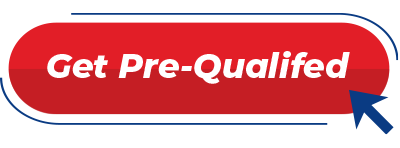by First Integrity Team Supreme Lending | Aug 30, 2024
An Overview of Supreme Lending Credit Score Requirements

When you’re preparing to buy a home, understanding the mortgage credit score requirements is essential. Your credit plays a significant role in determining your eligibility for various loan programs, as well as interest rates you may qualify for. Our goal at Supreme Lending is to provide the smoothest mortgage experience possible, that includes guiding you with transparent information to help you to make an informed, confident decision. Here’s an overview of Supreme Lending’s credit score requirements for common loan programs and frequently asked questions.
Conventional Loans
Conventional loans are popular among homebuyers due to their flexibility and competitive interest rates. As a general rule of thumb, Supreme Lending requires a minimum credit score of 620 for Conventional loans. However, a higher score typically results in securing more favorable rates and terms.
FHA Loans
Insured by the Federal Housing Administration, FHA loans are another common mortgage option –especially for first-time homebuyers or borrowers with lower credit. These loans have more lenient credit score requirements, accepting as low as 580.
VA Loans
For eligible military Veterans and active-duty personnel, VA loans offer affordable options as they don’t require a down payment or mortgage insurance premiums. Like FHA loans, Supreme Lending’s credit score requirement for VA loans is a minimum of 580.
USDA Loans
Guaranteed by the U.S. Department of Agriculture, USDA loans provide affordable financing designed for homebuyers in designated rural areas with no down payment required. In general, Supreme Lending’s credit score requirement for this program is 600.
Jumbo Loans
Jumbo loans are used to purchase high-value properties with a loan amount greater than conforming loan limits, which is $766,550 for one-unit homes in 2024. Due to potential higher lending risk, Jumbo loans typically have stricter qualifications. Supreme Lending has jumbo programs with a minimum credit score of 680, but depending on the loan guidelines, some may require at least a 720 credit score or higher.
Frequently Asked Questions
Now that you have a snapshot of common credit score requirements at Supreme Lending, here’s some more insight on how your credit can impact your mortgage.
How is a credit score determined?
A credit score, often represented by a FICO® score, is a numerical assessment of a borrower’s financial health. It is calculated based on several key factors:
- Payment History: Your record of on-time payments versus late or missed payments.
- Credit Utilization: The amount of credit you’re using compared to your total credit limits.
- Length of Credit History: The duration of time you’ve had credit accounts open.
- Types of Credit in Use. The variety of credit accounts you have, such as credit cards, mortgages, and car loans.
- Recent Credit Behavior. This includes how many new credit accounts you’ve opened recently and credit inquiries.
Combining these factors provides a numerical score to help reflect your creditworthiness.
What qualifies as a generally “good” credit score?
In general, a credit score of 670 to 739 is considered good according to FICO® standards. Scores in this range suggest that you are a responsible borrower with a solid history of managing credit well. 740 or higher is considered very good or exceptional. Remember, a higher the credit score usually results in more favorable mortgage rates and terms.
Additionally, a credit score between 580 and 669 is considered fair. This range aligns with many of the credit score requirements outlined above depending on the loan type. So don’t fall victim to the common mortgage myth that you need perfect credit to qualify for a home loan.
What’s the difference between a soft credit pull and hard credit pull?
When applying for a mortgage, lenders need to pull your credit report. There are two ways to do this:
- A soft credit pull is a credit check that doesn’t affect your credit score. It’s typically used for pre-qualifications or when you check your own credit. Supreme Lending has this option when you get pre-qualified for a mortgage.
- A hard credit pull, on the other hand, occurs when a lender reviews your credit score as a formal credit application during the loan approval process. Hard pulls can temporarily lower your credit score by just a few points. However, there’s no significant impact, which is another mortgage myth to debunk.
Here to Help
Don’t navigate the mortgage process alone! Our experienced and knowledgeable team at Supreme Lending is here to help you understand all aspects of your homebuying journey. From understanding credit score requirements and determining which loan program may work for you to our seamless underwriting process, we help you close your loan with confidence.
Contact us today to get started!
Related articles:
Common Credit Score and Down Payment Requirements by Mortgage Type
FHA Loans vs. Conventional Mortgage: Which One Is Right for You?
by First Integrity Team Supreme Lending | Aug 12, 2024
Unlocking Homeownership With Mortgage Gift Funds

When it comes to purchasing a home, the down payment is often a big hurdle for borrowers, especially first-time homebuyers. However, there may be an opportunity to help make homeownership a reality through mortgage gift funds. If you’re offered gift funds to use toward a home’s down payment or closing costs, it’s important to understand how the process works and what is needed. At Supreme Lending, we’re committed to guiding you through the mortgage process to achieve your dream of owning a home—that includes navigating gift funds.
What Are Mortgage Gift Funds?
Gift funds are sums of money given by family members, friends, or other eligible benefactors that can be used for the down payment or closing costs on a home purchase. These funds are a generous way for loved ones to help you invest in your homeownership journey without any expectation of repayment.
How Do Gift Funds Work?
Using gift funds for a mortgage is straightforward but requires adherence to certain rules to ensure they’re accepted by lenders. Here’s what you need to know:
- Documentation. The donor must provide a gift letter stating the amount of the gift, the relationship to the recipient, and that no repayment of the money is expected or required.
- Source Verification. Lenders will require proof of the donor’s ability to give the gift, often in the form of bank statements.
- Transfer Trail. It’s also crucial to provide documents verifying the transfer of funds from the donor to the borrower to satisfy lender requirements.
Lenders require these factors as confirmation that the gift isn’t in fact a loan, which would impact the borrower’s Loan-to-Value (LTV).
Guidelines for Loan Types
Depending on the type of loan you’re considering, there are specific guidelines to follow when using gift funds. These specify who may be eligible to provide the money and how much.
Conventional Loans
For conventional loans, gift funds may be used for some or all the down payment, closing costs, and financial reserves—as long as it’s from an acceptable source. The gift can be provided by a defined family member, including relatives by blood, marriage, adoption, legal guardianship, or domestic partner. The donor may not be or have an affiliation with the real estate agent, builder, developer, or any other interested party to the transaction.
Gift funds can be used for a primary residence and second home. Investment properties are not eligible. Minimum borrower contributions may apply depending on the down payment amount.
FHA Loans
Insured by the Federal Housing Administration, FHA loans offer a little more flexibility when it comes to mortgage gift funds. Donors can be family and other eligible givers such as a close friend, an employer or labor union, and charitable organization. A governmental agency or public entity that provides down payment assistance programs may also be eligible. However, cousins, nieces, and nephews are not qualified to provide gift funds for FHA.
VA and USDA Loans
While these government-insured loan options do not have down payment requirements, gift funds can still be used to cover closing costs. The gift can be provided by anyone that does not have an affiliation with the transaction. However, gift funds cannot be used to meet reserve requirements for VA and USDA loans.
Advantages of Mortgage Gift Funds
Ultimately, gift funds can help open doors to homeownership if you may not have qualified without the funds for a down payment or closing costs. Potential benefits of receiving gift funds include:
- Lower the financial burden of a down payment
- Improve your Loan-to-Value ratio
- May help you qualify for a more favorable mortgage
- Allow you to maintain savings for other expenses or emergency funds
Down Payment Assistance Alternatives
If you don’t have the option to receive gift funds, there may be other options to consider buying a home with less upfront costs. For example, FHA loans require a lower 3.5% down while VA and USDA loans offer no down payment requirement. For Conventional loans, eligible first-time homebuyers may put down just 3%.
There are also several down payment assistance programs designed to help more people achieve homeownership. Supreme Lending offers the Supreme Dream Down Payment Assistance that offers a fully forgivable second loan to cover the down payment and closing costs. There are also several local, regional, or state-specific programs available to provide aid. Eligibility typically depends on factors such as income, credit score, and location.
Our team at Supreme Lending believes that informed homebuyers make empowered homeowners. Understanding gift funds and alternatives for down payment assistance can help open doors to homeownership that might otherwise seem closed.
Ready to take the next step to buying a home? We’re here to guide you every step of the way. Contact your local branch to get started.

by SupremeLending | Feb 28, 2024

If you’re looking for a home with acreage in the country, to build the homestead of your dreams outside the city, or to embrace nature’s beauty of rural living, a USDA loan could be a great mortgage option with it’s no down payment requirement and flexible guidelines.
The U.S. Department of Agriculture (USDA) guarantees the loan for homebuyers in rural areas, including designated small towns and eligible suburbs outside of large cities. USDA loans help encourage rural development across America by offering affordable home financing to those with lower to moderate income. USDA loans may be one of the least-known government mortgage programs available, so let’s go over the loan features and potential benefits.
Why choose a USDA loan? If you’re located in an eligible area, there are several features USDA loans:
- No down payment requirement.
- Lower closing costs and interest rates.
- 100% financing with a one-time guarantee fee that can be rolled into the loan.
- Lower credit score minimums.
- Gift funds and grants permitted from family or government assistance agencies.
- Eligible properties include single-family homes, new construction, modular homes, planned unit developments (PUDs), and eligible condominiums.
- Mortgage insurance is required.
- Borrower’s income can’t exceed the USDA Rural Development limits for the area.
You can check to see if a property’s location is eligible for a rural development loan on the USDA’s website using the property eligibility maps and income limit calculator.
Ready to say goodbye to city life and hello to wide open spaces? Realize your dream of rural living with the possibility of a USDA loan.
For more mortgage information, reach out to your local Supreme Lending branch today.





